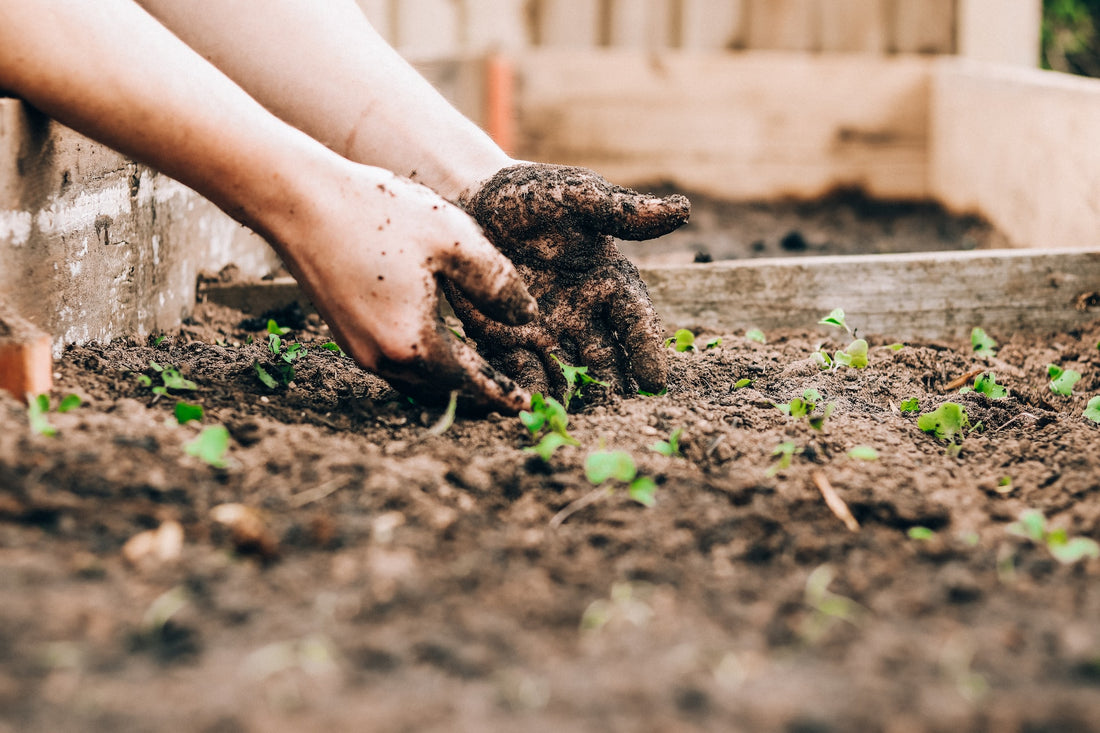There are upsides and downsides to using sustainable gardening practices. It takes more work to keep bugs and weeds away when you're not spraying them with chemicals. But having food free of toxic chemicals is a big plus. Vegetable yields are also lower with sustainable methods because of the no chemicals. However, the crops taste a million times better when they're allowed to grow and ripen naturally.
For small, family gardens, moving to more sustainable methods isn't as tricky as it is for the larger mono-crop operations. And, in many cases, it's actually less work for the gardener once you employ these methods. It just takes a little time to make the transition, and then you reap the rewards of healthier foods and knowing you are contributing to a healthier planet.
Four Easy Steps To Sustainable Gardening
-
Soil is everything. It must be healthy, vital, and strong to produce excellent crops. It needs to be free of chemical fertilizers that are great in the short term but cause terrible long-term side effects on soil health.
Adding compost and other natural organic materials is necessary to boost the soil. This process takes time and is where many potential sustainable gardeners give up. You may have lower yields, less crop space, and work more in the first few years. And this may make you think it's not worthwhile or takes too much time.
However, in the grand scheme of the world, allowing 3-4 years to create better, healthier soil free of chemical fertilizers and dependency is absolutely worth it for the 20-40 years afterward of excellent gardening. We must embrace patience, allow nature to work on its own time, and let the earth heal.
-
Always be mulching. Mulch not only prevents weeds naturally, but it also helps the soil retain moisture. This means you won't have to water as often, which is great for your water bill (and wallet) and the environment. It is especially necessary for drought-prone places. Learn more about mulching and all its benefits here.
-
Learn about your garden residents. There are good bugs and pesky bugs, and knowing the difference is essential. If you kill them all indiscriminately, you prevent the good bugs from naturally taking care of infestations and issues. And you'll have to use tons of pesticides to pick up the slack.
Learn about the different bugs. Learn how to encourage beneficial insects. Beneficial insects, like bees, butterflies, and ladybugs, will make your garden prosper. But if you're spreading pesticides, you won't have any of them to help you create a sustainable garden.
Companion planting is a natural way to reduce pests, as is crop rotation and staggered planting. These methods are super simple but extremely different from the typical way most folks garden. All it takes to embrace these techniques is to learn about them (very easy!) and apply them (also super easy!).
-
Pay Attention. This seems like a no-brainer, but it doesn't just mean looking at the garden occasionally. It means getting down and investigating the plants regularly and paying attention to what you see. Many bad insect infestations can be prevented from spreading if they're caught early enough. And many of these buggers are tricky and love to hide. So, you have to really look, pay attention to little changes, and take action immediately.
You're not just paying attention to bugs or diseases. Look for any moisture issues that can lead to mildew and diseases. Notice where the sun and shade fall and when, to make the most of the available space.
A successful garden takes time, energy, and fellowship. Make friends with your soil and the beneficial insects that reside in and around your garden. And welcome this new(er) way of gardening that doesn't rely on big chemical companies, toxic pesticides, and immediate results. The best things are worth building and working towards.



